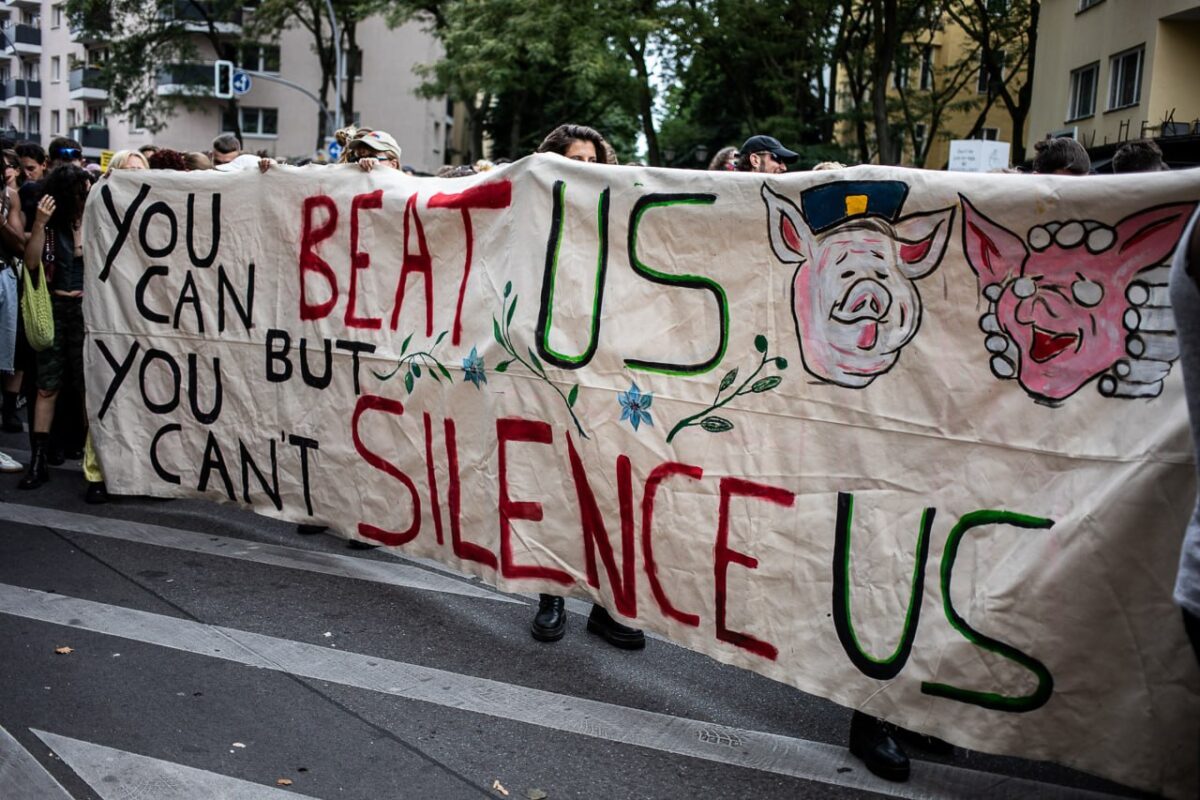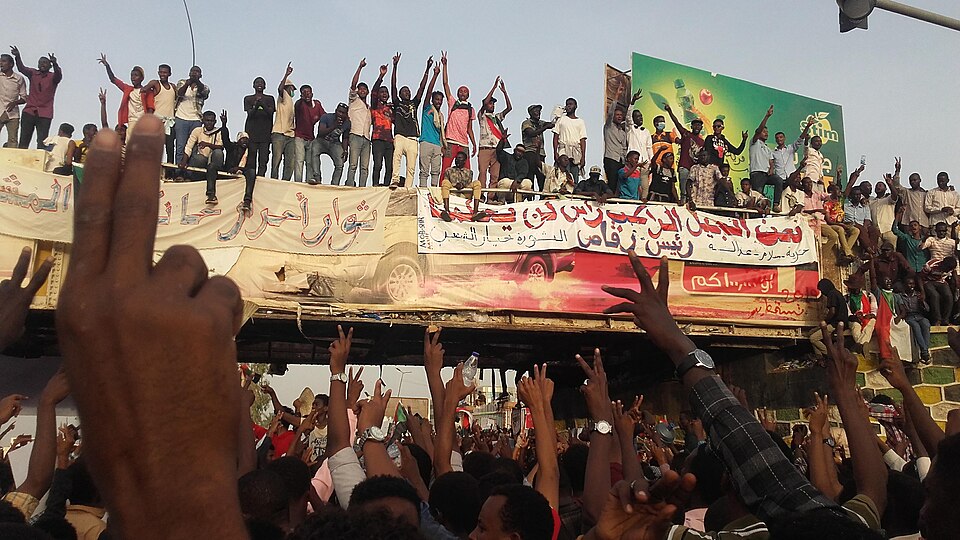The wave of vast uprisings throughout Africa and Asia has also reached Madagascar, the Southeast African island state and former French colony. Once again, the protests were led by the country’s youth and young adults – known as the Gen Z . They are fed up with the lack of proper education and job opportunities, failing infrastructure, high living costs and inequality, corrupt politicians, police violence and non-existing democracy; and anger has been building up for years. After days of unsuccessful attempts of breaking the uprising with police and military brutality, the army unit CAPSAT eventually mutinied and turned its weapons against the state oppression. The president Rajoelina was impeached by the National Assembly and flew to exile with help of Emmanuel Macron.
This is nothing new, Madagascar – like many countries of the Global South – has seen military coups before. There were military takeovers in five other former French colonies, Mali, Burkina Faso, Niger, Gabon and Guinea since 2020. Now the army in Madagascar announced their take-over of the state institutions and is forming a transitional government on October 14th. The army will work together alongside a civilian parliament until new elections are held in up to two years, People’s Dispatch reported. The new president, colonel Randrianirina, underlined that power was handed him by the people. “This is not a coup,” he stated in the first press conference on October 16 highlighting that Madagascar’s seizure of power is taking place in support of a civilian protest movement, according to taz. Indeed, Bakary Sambe, from the Senegal-based Timbuktu Institute for Peace Studies explains that there is a visible trend of civil society backed coups in Africa that are considered as a democratization process from below. Yet, many examples have shown – like the developments after the Arab spring in Egypt – that the military cannot be trusted to work for the people but rather tends to turn against them.
Moreover, Randrianirina has now appointed Herintsalama Rajaonarivelo as a new civilian prime minister. He is a businessman, former chairman of the National Industrial Bank as well as a former consultant of the World Bank and the EU. Randrianirina justified his choice stating Rajaonarivelo has “the skills, the experience but also relations with international organisations in other countries that will collaborate with Madagascar,” according to Radio France Internationale. This hardly is good news taking into account the demands of the Gen Z and the historical developments that have led to the status quo. That is a small elite fills their pockets with millions, while 80% of the population relies on agriculture as their primary source of income; and almost 70% live “under the poverty line” with US$2.15 per person per day (according to the World Bank 2024/25).
The “Mad Queen” of Madagascar and other (neo) colonial clichés
“You cannot imagine, some years ago . . . the journey from Tamatave to Mahavelona took only 40 minutes. Now it takes about four hours if the car doesn’t break down,” a Swiss friend explains, who has lived in Madagascar for 12 years. He is talking about one of the country’s main roads that stretches along the eastern coast, built by the Chinese but failed to be maintained by the government. Now the road is filled with huge, dangerous pot holes and the sand, mud and sea salt break the vehicles quickly. The country lacks the basic infrastructure throughout that would help to pull people out of poverty. As another example, a 17km drive in the country side took a whole two hours one way in an SUV. We passed tiny villages and plantations without seeing any other electric vehicle on the narrow bumpy and muddy road. Not even the scooters that fill the streets in Antananarivo and other cities. People walk for hours to work at their farm and back to the village – young and old, many carrying large sacks of crop on their backs. “What happens if there is an emergency, like a heart attack?” I asked the driver. “Well then there is nothing you can do: people just die,” he shrugged his shoulders.
The unacceptable living conditions in large parts of rural areas have encouraged rural exodus and the formation of a “slum proletariat” – lumpenproletariat with the high revolutionary potential as Frantz Fanon put it. They have no prospects in the cities, a fertile breeding ground for popular uprisings, as taz describes (October 18). The vast majority end up working in informal sectors of buying and selling goods, like Hashimi from an El Pais report 2022. He belongs to the stateless Karana minority who usually even have no civil rights, rights to vote or even to own land. There have been pogroms in the minority neighbourhoods and kidnappings of Karana. Indeed, my Swiss friend explained that the Malagasy society is highly divided with intense racism against people from outside the central plateau around Antananarivo. The power in the country is highly concentrated in the capital and its Merina people consider themselves as the ruling “caste”.
The kingdom of Merina has a rich royal history. It managed to effectively resist the British and French imperialism during the reign of Queen Ranavalona I mid-19th century but at a high cost. Pursuing the policy of self-sufficiency and ancestral practices, the queen successfully fought French invasions, withdrew the trade agreements with the Brits (signed by her late husband), and outlawed and persecuted Christianity and the European missionaries. Yet, she also launched attacks to other provinces executing and enslaving masses. Especially people from other ethnic groups – in the name of “national unity” and progress of the Merina reign. However, there are horrific stories about her terror which estimates one half of the population perished. These are mainly written by the colonialists – not least to argue how a woman cannot be an emancipated head of state and to downgrade the atrocities committed by Queen Victoria. But research by Alison Kamhi in 2002 shows more diverse perceptions about Queen Ranavalona I by locals. Her legacy still fascinates many and impacts the political discourse. The queen saw that dependency on imported basic goods would lead to the takeover by the Europeans. During her rule, Madagascar started a rapid industrialization: Various factories were built by the state as well as private investors. The highly controversial Queen managed to increase the prosperity in the country, survived an assassination attempt, orchestrated by her son and a French slave trader, and died peacefully 1861.
After her rule, the Merina monarchs turned back towards Christianity to collaborate with Europeans. Despite fierce resistance, finally losing independence in French invasion 1896. Monarchy was abolished, the last Queen Ranavalona III was sent to exile to Algeria and history of Malagasy kingdoms swiped out from the school curriculum. The French exercised particularly exploitative and cruel colonialism with the principle of “assimilation” to shift the island’s economy to export oriented crop production like coffee. Moreover, uprisings were brutally smashed like the revolt of 1947 to which the French troops reacted with tremendous violence: “[…] killing an estimated 30,000 to 90,000 Malagasy people over the course of 18 months. French troops engaged in widespread massacres, forced labor, and torture to quell the rebellion, leaving deep scars on the Malagasy population.” Yet, even after independence in 1960, the state was characterized by French settler power and tight relations to the former colonizer, and neo liberal Structural Adjustment Programs (SAP) of the IMF and the World Bank.
Back to the future
The rather anarchistic protests begun September 25 with growing rage about frequent power and water supply cuts as well as police violence. The Gen Z of the country demanded the basic rights of access to clean water and sufficient electricity – but also changes to the whole political system, according to L’Express. Taz reports corruption and mismanagement in the national water and electricity supplier Jirama. In addition, the island is facing the worst drought for 40 years, and international NGOs warn about a famine threatening the poor eastern and southern regions with many being displaced. Since a large part of the country’s electricity production comes from hydropower, the drought impacts the power supply. The freedom of association, assembly and speech are highly restricted in Madagascar, as Amnesty International reports. Hence, president Andy Rajoelina reacted first with harsh repressions and violence against the protests. But the fierce Gen Z kept taking the streets until the army unit CAPSAT decided to support the uprising. It had already done this in 2009 helping Rajoelina into power. The army now ousted the same president 16 years later. “Let us join forces, military, gendarmes and police, and refuse to be paid to shoot our friends, our brothers and our sisters,” the soldiers at the base in the Soanierana district said in a video posted on social media, according to Al Jazeera on October 11.
So, history repeats itself but the spark grows. The Indian Times reports on October 27, that many of the Gen Z are ready to protest further if there is no change and their demands aren’t met. “Here, people of my age, they almost all don’t work. They are standing here with their hands in their pockets – they have no income,” tells one young person to the journalist. Moreover, Socialist Worker points out, that this time there were Union attempts to back the protest, especially in the health care sector. Camilla Royle underlines that cooperation between the workers of the continent’s huge informal sector and the organized working class is crucial to push through the demands, instead of flattening the protest movement into small reforms.
Daniel T. Makokera, explains: “Across the continent, a new phenomenon is emerging — the so-called “good coups.” In an era where leaders in their 80s and 90s cling to power through sham elections and constitutional manipulation, some Africans, especially the youth, see military takeovers as a desperate form of justice. When a 91-year-old in Cameroon can “win” an election after four decades of corruption and repression, one cannot entirely blame a generation that begins to equate stability with stagnation and revolt with renewal.” Pointing out the resent regime changes in Mali, Burkina Faso, Niger, Gabon and Guinea, Makokera calls the developments a continental symptom. Where the young generation has lost their hope and trust in the “democratic” institutions – with the old imperialist powers as the puppet masters.
As one Kenyan comrade put it, for decades Africans have looked up to Europe and the US and accepted their hegemony. The younger generation is different. Armed with social media networks, they see the linkages between the poverty in their countries, neo colonialism and the international instruments of the IMF and the World Bank. They are not ready to take the exploitation anymore. During my travels in various African countries, I kept asking the same question: “You managed to chase the powerful European colonizers away some decades earlier but where is the outrage and the resistance now?” And I kept getting the same answer: “We are tired and people just disappear easily if they try to organize protests. During the colonial time it was easy to point out who the enemy is but now we are exploited and oppressed by our own people.” Charismatic military leaders like Traoré in Burkina Faso are hardly the long-term solution for the true liberation of the people of the Global South, but perhaps are the means to the right direction. Yet, the most important lesson learned here remains, that the people are finding their power and agency to unite, resist and to liberate themselves.




